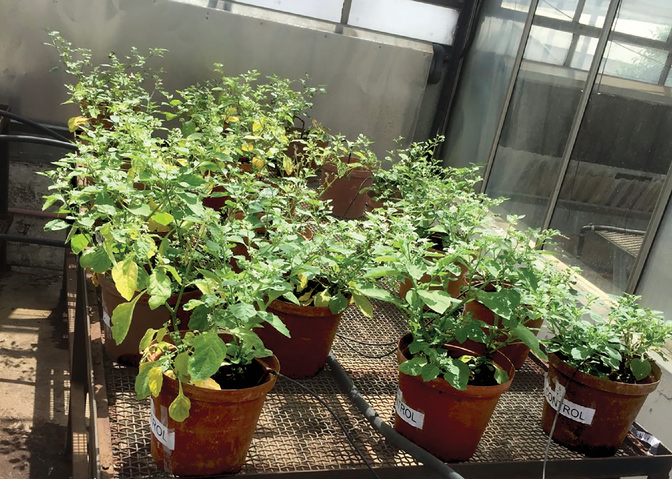Micronutrient Impact on Black Nightshade Yield

Selected micronutrients shape the growth, development, and yield of black nightshade (Solanum nigrum), an important leafy vegetable consumed and used for medical purposes in sub‐Saharan Africa. However, there is limited knowledge about the effects of micronutrients on black nightshade, hindering the development of precise agricultural strategies for optimal yield and nutritional yield.
Researchers at the University of KwaZulu‐Natal in Pietermaritzburg, South Africa tested the impact of the micronutrients zinc (Zn) and boron (B) on black nightshade growth and development. They applied varying concentrations of Zn and B and found significant growth and yield differences based on the different treatments. Notably, the application of 500 ppm of boron (the highest concentration tested) demonstrated superior performance, resulting in enhanced plant growth and the highest fruit yield. The results highlight the unique and favorable influence of B on various physiological processes and cellular development compared with Zn.
The findings underscore the significance of micronutrient supplementation for higher yield potential and emphasize the potential of black nightshade in addressing food and nutrition security challenges in sub‐Saharan Africa, thereby improving food security and promoting sustainable practices.
Adapted from
Rumani, M., Badza, T., Odindo, A. O., & Mudau, F. N. (2023). Selected micronutrients effect on growth, development, and yield of black nightshade (Solanum nigrum). Urban Agriculture & Regional Food Systems, 8, e20049. https://doi.org/10.1002/uar2.20049
Text © . The authors. CC BY-NC-ND 4.0. Except where otherwise noted, images are subject to copyright. Any reuse without express permission from the copyright owner is prohibited.







